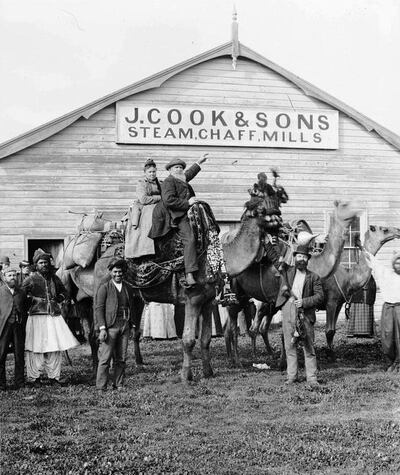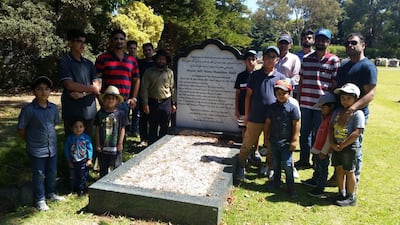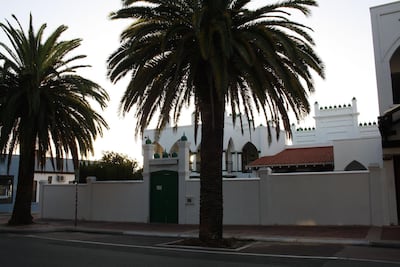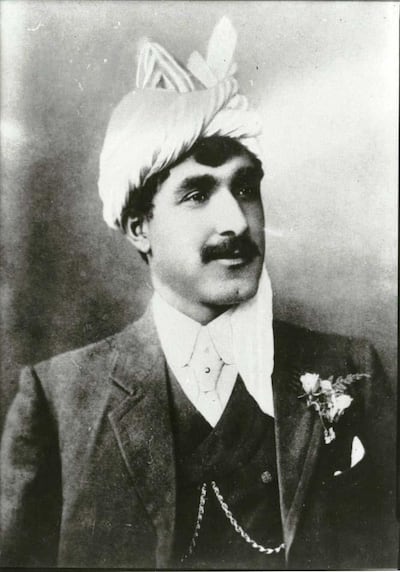For almost 120 years, Perth Mosque has served Muslim communities in the far-flung capital of Western Australia, where, for many decades, it was the only mosque in the city.
While Sydney is home to the largest Muslim community in Australia, it’s Perth that hosts the country’s second-oldest continuously operating mosque.
The mosque is almost as old as the country itself – built just five years after the separate British colonies federated into one country to create Australia in 1901.
Muslims played a vital role in society and from early on. From the 1860s to the 1930s, predominantly Muslim cameleers, who trained and drove camels, helped deliver important goods across vast and inhospitable areas in the country’s sprawling interior.
Some of the oldest non-Aboriginal grave sites in the state’s remote regional communities are those of Muslim immigrants who played a vital role in the economy.

Many were from India, Turkey and Egypt, as well as Afghanistan. By the 1870s, there was also a significant Muslim Malay population working in Western Australia’s pearling industry.
Today, Australia’s Muslim population is predominantly Sunni, but there are also significant Shia, Ahmadiyya and Alawite populations.
Journalist and filmmaker Saad Khalid said the cameleers were a “vital part of Australia’s history” but the work that they did was underappreciated at the time.
“Their work was really tough; they were away from their families, away from their homes. … I believe Australia would have been 40-60 years behind without their efforts,” he said.
For many, the mosque was a home from home. “Their Muslim identity was cemented in the Perth Mosque … and the mosques that they built in the remote outback.”
But as the country modernised, traditional industries suffered. The rise of rail and motor car saw many cameleers lose their jobs by the end of the 1930s, Khalid said. While most returned to their homelands, some stayed in Australia, married local women and started families that remain in Australia to this day.
Hassan Musa Khan, a prominent member of the early Australian Muslim community, arrived in Australia from Karachi, India in 1896. He was a nephew of Khan Bahadur Moradkhan, the first South Asian supplier of camels to Australia, who served as an arbitrator in an important 1899 court case involving camel importation to Western Australia.
He set up shop as a bookseller then established the Perth mosque in 1904, throwing his energies into having the building completed within two years. Prior to that, Muslims in the area typically prayed at home or gathered in informal congregations.
Mr Khan later donated many of his books to the State Library of Western Australia, and co-edited a booklet on the history of Islam in Australia along with Mahomet Allum.
Mr Allum, an Afghan immigrant, was perhaps the most famous Muslim in Australia for many decades. A herbalist who provided treatment to the poor, he was nicknamed “the wonder man” and renowned for his generosity to charities.
While larger-than-life figures like this were widely known, the Muslim community in West Australia remained small for many decades.
Mohammed Shakeeb, the current imam of Perth Mosque, told The National that during his childhood in the 1970s it was possible to attend the city mosque and personally know every other person there.
He has now been the mosque’s imam for almost six years, and said it serves as a hub for Muslims from across the city.
“This is a great spot for people working and passing through, for taxi drivers, for uber drivers, for the uber eats delivery workers. We had ten bikes locked up here, I had to say ‘it’s a place of worship, not an uber stop’,” he laughs.
Around 500 people attend Friday prayers at Perth Mosque, with up to 100 visiting on other days.
“The Perth Mosque really is a central part of the community, it’s always frequently used. It was the only mosque for such a long time [and] there are a lot of community memories attached to it. Growing up as a kid you’d go into the city to go to the mosque,” Mr Shakeeb says.
The mosque recently lost one of its long-time members, trustee Ayub Khan, who passed away aged 92. The imam said Mr Khan witnessed extraordinary change in his time. “There have been a lot of changes over the decades, the community has got much bigger … In Mr Khan’s time it would have been just a handful of people.”

According to the 2016 census, almost 50,000 Muslims now live in Perth – eight per cent of the Australian Muslim population.
But in recent decades, things have changed for Perth’s Muslims. The events of 2001 were a “wake up call” for the community, Mr Shakeeb says, referring not only to the September 11 attacks in the United States, but also to the Australian Government’s treatment of Afghan refugees on board the Norwegian ship MV Tampa, which was intercepted by the Australian military in a dramatic raid.
“We were in our comfort zones before that. We didn’t think there was a need to do anything differently, people were content to stay in their own community and their own culture.”
But today, he has a warning for his community. “My message in Friday sermons is that we don’t have the luxury to do that, we need to not only be a part of the broader community – which we already are – we also need to be seen to be part of the community.”
He believes that only a small percentage of Australians are consciously anti-Muslim, while many others can be swayed “one way or another”.
A recent event organised by Perth’s Muslims, Perth Unites, attracted a huge crowd of Muslims and non-Muslims to a local park and raised AUD$30,000 for victims of Australia’s fire crisis.
“We need to get out there and make clear that this is our community. Some of us are second, third, fourth-generation Australians and we need to be part of the society, and not isolate ourselves. When people don’t know you, they can hate you, but when they do know you – they will be the ones to defend you.”



